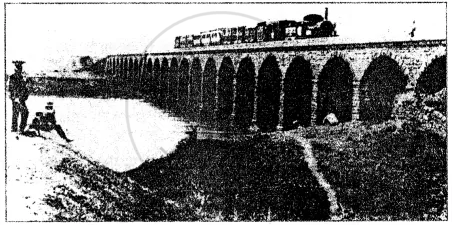Advertisements
Advertisements
प्रश्न
Fill in the blanks:
The three kinds of land settlements made by the British were (a) _________ (b) __________ and (c) ____________
उत्तर
The three kinds of land settlements made by the British were (a) Permanent settlement (b) Ryotwari settlement and (c) Mahalwari settlement
APPEARS IN
संबंधित प्रश्न
Fill in the blank:
A large share of revenue collected by the Company in India had to be paid to the British government as ___________.
Fill in the blanks:
To eliminate competition from India’s traditional industries the British transformed India into a _____________ and _____________.
Fill in the blanks:
Before the advent of the British, the Indian craftspeople operated at two levels the ________ and the ________ levels.
Answer the following question briefly:
In the context of Permanent Settlement of Bengal answer the following:
What are its advantages?
Answer the following question briefly:
In the context of Permanent Settlement of Bengal answer the following:
Briefly describe its disadvantages
Answer the following question briefly:
The first century of British rule resulted in the decay and destruction of the traditional Indian trade and industry. Explain this statement with reference to the following:
The decline of modern Indian industries.
Fill in the blank:
The Indian villages were ____________ communities before the coming of the British.
Fill in the blank:
A new class of landholders called _________ came into existence during this time.
Match the contents of Column A and Column B:
| Column A | Column B |
| 1. Ijaradari system | (a) Introduced by Lord Cornwallis |
| 2. Cotton, jute, poppy, sugarcane | (b) Linked with ports to make trade easier |
| 3. Ryotwari system | (c) First train from Mumbai to Thane |
| 4. permanent Settlement | (d) Calcutta linked to coalfields |
| 5. 1854 | (e) A new middle class |
| 6. 1856 | (f) Collective responsibility of farmers to pay the revenue |
| 7. All major raw material producing areas | (g) Cash crops grown by farmers |
| 8. Mahalwari system | (h) Railway line joined Madras to Arakonam |
| 9. 1853 | (i) Settlement made directly with cultivators |
| 10. Zamindars | (j) Auctioning of revenue to the highest bidder for five years |
Look at the picture.

How did it prove to be a boon for the Indians?
